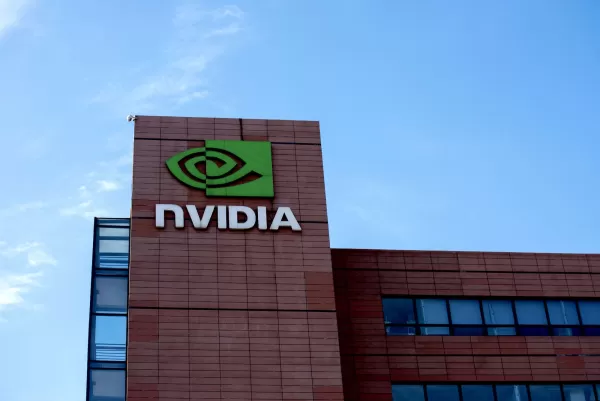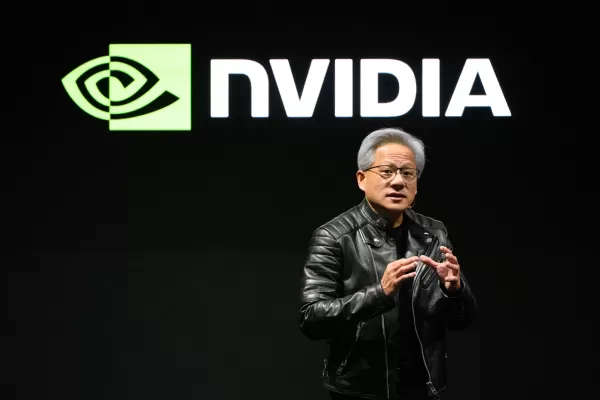Nvidia's H20 AI Chips May Escape Export Controls Temporarily

Nvidia's H20 AI Chip Escapes Export Restrictions in Deal with Trump Administration
Nvidia CEO Jensen Huang has reportedly secured an agreement with the Trump administration, allowing the company to continue exporting its H20 AI chips to China. This move comes after Huang promised to invest in new AI data centers within the United States. The deal was allegedly struck during a dinner at Trump's Mar-a-Lago resort last week, according to NPR. Nvidia has chosen not to comment on the matter.
The H20 chip, which is the most advanced AI chip Nvidia can export to China due to its modified, lower performance specifications, was at risk of facing export restrictions. This concern arose because the H20 was reportedly used by the China-based company DeepSeek to train its R1 open AI model. Launched in January, R1 garnered attention for outperforming models from U.S.-based AI labs, including those from OpenAI.
Despite bipartisan calls from U.S. Senators for restrictions on the H20, and reports that the Trump administration was initially preparing to impose export controls, the course was reversed following Huang's proposal. This decision seems to contradict the administration's aim to maintain U.S. dominance in AI technology.
Adding to the complexity, the Trump administration has decided to maintain the AI chip export rules established by former President Joe Biden in January. These rules impose export limits on nearly all countries outside the U.S., with stricter measures on China and Russia. Nvidia has criticized these guidelines as "unprecedented and misguided," arguing that they could hinder global innovation.
Beyond Nvidia, other AI companies have embraced Trump's "America-first" policy to gain favor with the administration. For instance, OpenAI, in collaboration with SoftBank and Oracle, launched the $500 billion Stargate Project in January to build U.S. data centers. Similarly, Microsoft committed $80 billion for AI data center development in its 2025 fiscal year, with half of the funds designated for the U.S.
Trump's approach has also involved applying pressure on international partners. He reportedly threatened the Taiwanese semiconductor company TSMC with a tax increase of up to 100% if it did not establish new chip manufacturing facilities in the U.S.
Related article
 Two Charged in Scheme to Illegally Export AI Chips to China
The U.S. Department of Justice (DOJ) announced Tuesday that two Chinese nationals were apprehended for allegedly orchestrating the illegal export of high-performance AI chips, valued at tens of millio
Two Charged in Scheme to Illegally Export AI Chips to China
The U.S. Department of Justice (DOJ) announced Tuesday that two Chinese nationals were apprehended for allegedly orchestrating the illegal export of high-performance AI chips, valued at tens of millio
 Oracle's $40B Nvidia Chip Investment Boosts Texas AI Data Center
Oracle is set to invest approximately $40 billion in Nvidia chips to power a major new data center in Texas, developed by OpenAI, as reported by the Financial Times. This deal, one of the largest chip
Oracle's $40B Nvidia Chip Investment Boosts Texas AI Data Center
Oracle is set to invest approximately $40 billion in Nvidia chips to power a major new data center in Texas, developed by OpenAI, as reported by the Financial Times. This deal, one of the largest chip
 Nvidia’s Earnings: Beyond Export Restrictions to New Hardware Demand
Nvidia will announce its fiscal 2026 first-quarter earnings, ending April 27, after market close on Wednesday.While U.S. chip export controls have stirred concerns about Nvidia’s global chip sales and
Comments (6)
0/200
Nvidia’s Earnings: Beyond Export Restrictions to New Hardware Demand
Nvidia will announce its fiscal 2026 first-quarter earnings, ending April 27, after market close on Wednesday.While U.S. chip export controls have stirred concerns about Nvidia’s global chip sales and
Comments (6)
0/200
![BrianRoberts]() BrianRoberts
BrianRoberts
 July 30, 2025 at 9:41:19 PM EDT
July 30, 2025 at 9:41:19 PM EDT
Wow, Nvidia pulling strings to keep those H20 chips flowing to China? Smart move by Jensen Huang, but I wonder how long this deal will hold up with all the trade tensions. 🧐


 0
0
![StevenNelson]() StevenNelson
StevenNelson
 April 25, 2025 at 5:23:24 PM EDT
April 25, 2025 at 5:23:24 PM EDT
NvidiaのH20 AIチップが輸出規制を一時的に免除されるなんて、ジェンセン・ファンさんの交渉力がすごいですね!中国市場への進出が続くのは嬉しいけど、この特例がいつまで続くのか気になります。😅とりあえず、今は勝ちですね!Nvidia、頑張ってください!


 0
0
![NicholasRoberts]() NicholasRoberts
NicholasRoberts
 April 25, 2025 at 4:26:51 PM EDT
April 25, 2025 at 4:26:51 PM EDT
Nvidia's H20 AI chips getting a pass on export controls? That's a smart move by Jensen Huang! It's great to see them still pushing into the Chinese market. But I wonder how long this deal will last with all the political changes. 🤔 Still, it's a win for now! Keep innovating, Nvidia!


 0
0
![DouglasMitchell]() DouglasMitchell
DouglasMitchell
 April 24, 2025 at 11:10:58 AM EDT
April 24, 2025 at 11:10:58 AM EDT
Los chips de IA H20 de Nvidia logrando evadir los controles de exportación, ¡qué jugada más inteligente de Jensen Huang! Es genial ver que siguen avanzando en el mercado chino. Pero me pregunto cuánto durará este acuerdo con todos los cambios políticos. 🤔 Aún así, es una victoria por ahora. ¡Sigan innovando, Nvidia!


 0
0
![AlbertRodriguez]() AlbertRodriguez
AlbertRodriguez
 April 24, 2025 at 5:22:06 AM EDT
April 24, 2025 at 5:22:06 AM EDT
Os chips de IA H20 da Nvidia conseguirem escapar das restrições de exportação? Isso é uma jogada inteligente do Jensen Huang! É ótimo ver que eles ainda estão avançando no mercado chinês. Mas me pergunto quanto tempo esse acordo vai durar com todas essas mudanças políticas. 🤔 Ainda assim, é uma vitória por enquanto! Continuem inovando, Nvidia!


 0
0
![BillyWilson]() BillyWilson
BillyWilson
 April 24, 2025 at 3:47:05 AM EDT
April 24, 2025 at 3:47:05 AM EDT
Nvidia의 H20 AI 칩이 수출 규제를 일시적으로 피한다니, 젠슨 황의 협상력이 대단하네요! 중국 시장에 계속 진출할 수 있어서 좋지만, 이 특례가 언제까지 갈지 궁금해요. 😅 일단은 승리죠! Nvidia, 계속 혁신해주세요!


 0
0

Nvidia's H20 AI Chip Escapes Export Restrictions in Deal with Trump Administration
Nvidia CEO Jensen Huang has reportedly secured an agreement with the Trump administration, allowing the company to continue exporting its H20 AI chips to China. This move comes after Huang promised to invest in new AI data centers within the United States. The deal was allegedly struck during a dinner at Trump's Mar-a-Lago resort last week, according to NPR. Nvidia has chosen not to comment on the matter.
The H20 chip, which is the most advanced AI chip Nvidia can export to China due to its modified, lower performance specifications, was at risk of facing export restrictions. This concern arose because the H20 was reportedly used by the China-based company DeepSeek to train its R1 open AI model. Launched in January, R1 garnered attention for outperforming models from U.S.-based AI labs, including those from OpenAI.
Despite bipartisan calls from U.S. Senators for restrictions on the H20, and reports that the Trump administration was initially preparing to impose export controls, the course was reversed following Huang's proposal. This decision seems to contradict the administration's aim to maintain U.S. dominance in AI technology.
Adding to the complexity, the Trump administration has decided to maintain the AI chip export rules established by former President Joe Biden in January. These rules impose export limits on nearly all countries outside the U.S., with stricter measures on China and Russia. Nvidia has criticized these guidelines as "unprecedented and misguided," arguing that they could hinder global innovation.
Beyond Nvidia, other AI companies have embraced Trump's "America-first" policy to gain favor with the administration. For instance, OpenAI, in collaboration with SoftBank and Oracle, launched the $500 billion Stargate Project in January to build U.S. data centers. Similarly, Microsoft committed $80 billion for AI data center development in its 2025 fiscal year, with half of the funds designated for the U.S.
Trump's approach has also involved applying pressure on international partners. He reportedly threatened the Taiwanese semiconductor company TSMC with a tax increase of up to 100% if it did not establish new chip manufacturing facilities in the U.S.
 Two Charged in Scheme to Illegally Export AI Chips to China
The U.S. Department of Justice (DOJ) announced Tuesday that two Chinese nationals were apprehended for allegedly orchestrating the illegal export of high-performance AI chips, valued at tens of millio
Two Charged in Scheme to Illegally Export AI Chips to China
The U.S. Department of Justice (DOJ) announced Tuesday that two Chinese nationals were apprehended for allegedly orchestrating the illegal export of high-performance AI chips, valued at tens of millio
 Nvidia’s Earnings: Beyond Export Restrictions to New Hardware Demand
Nvidia will announce its fiscal 2026 first-quarter earnings, ending April 27, after market close on Wednesday.While U.S. chip export controls have stirred concerns about Nvidia’s global chip sales and
Nvidia’s Earnings: Beyond Export Restrictions to New Hardware Demand
Nvidia will announce its fiscal 2026 first-quarter earnings, ending April 27, after market close on Wednesday.While U.S. chip export controls have stirred concerns about Nvidia’s global chip sales and
 July 30, 2025 at 9:41:19 PM EDT
July 30, 2025 at 9:41:19 PM EDT
Wow, Nvidia pulling strings to keep those H20 chips flowing to China? Smart move by Jensen Huang, but I wonder how long this deal will hold up with all the trade tensions. 🧐


 0
0
 April 25, 2025 at 5:23:24 PM EDT
April 25, 2025 at 5:23:24 PM EDT
NvidiaのH20 AIチップが輸出規制を一時的に免除されるなんて、ジェンセン・ファンさんの交渉力がすごいですね!中国市場への進出が続くのは嬉しいけど、この特例がいつまで続くのか気になります。😅とりあえず、今は勝ちですね!Nvidia、頑張ってください!


 0
0
 April 25, 2025 at 4:26:51 PM EDT
April 25, 2025 at 4:26:51 PM EDT
Nvidia's H20 AI chips getting a pass on export controls? That's a smart move by Jensen Huang! It's great to see them still pushing into the Chinese market. But I wonder how long this deal will last with all the political changes. 🤔 Still, it's a win for now! Keep innovating, Nvidia!


 0
0
 April 24, 2025 at 11:10:58 AM EDT
April 24, 2025 at 11:10:58 AM EDT
Los chips de IA H20 de Nvidia logrando evadir los controles de exportación, ¡qué jugada más inteligente de Jensen Huang! Es genial ver que siguen avanzando en el mercado chino. Pero me pregunto cuánto durará este acuerdo con todos los cambios políticos. 🤔 Aún así, es una victoria por ahora. ¡Sigan innovando, Nvidia!


 0
0
 April 24, 2025 at 5:22:06 AM EDT
April 24, 2025 at 5:22:06 AM EDT
Os chips de IA H20 da Nvidia conseguirem escapar das restrições de exportação? Isso é uma jogada inteligente do Jensen Huang! É ótimo ver que eles ainda estão avançando no mercado chinês. Mas me pergunto quanto tempo esse acordo vai durar com todas essas mudanças políticas. 🤔 Ainda assim, é uma vitória por enquanto! Continuem inovando, Nvidia!


 0
0
 April 24, 2025 at 3:47:05 AM EDT
April 24, 2025 at 3:47:05 AM EDT
Nvidia의 H20 AI 칩이 수출 규제를 일시적으로 피한다니, 젠슨 황의 협상력이 대단하네요! 중국 시장에 계속 진출할 수 있어서 좋지만, 이 특례가 언제까지 갈지 궁금해요. 😅 일단은 승리죠! Nvidia, 계속 혁신해주세요!


 0
0





























